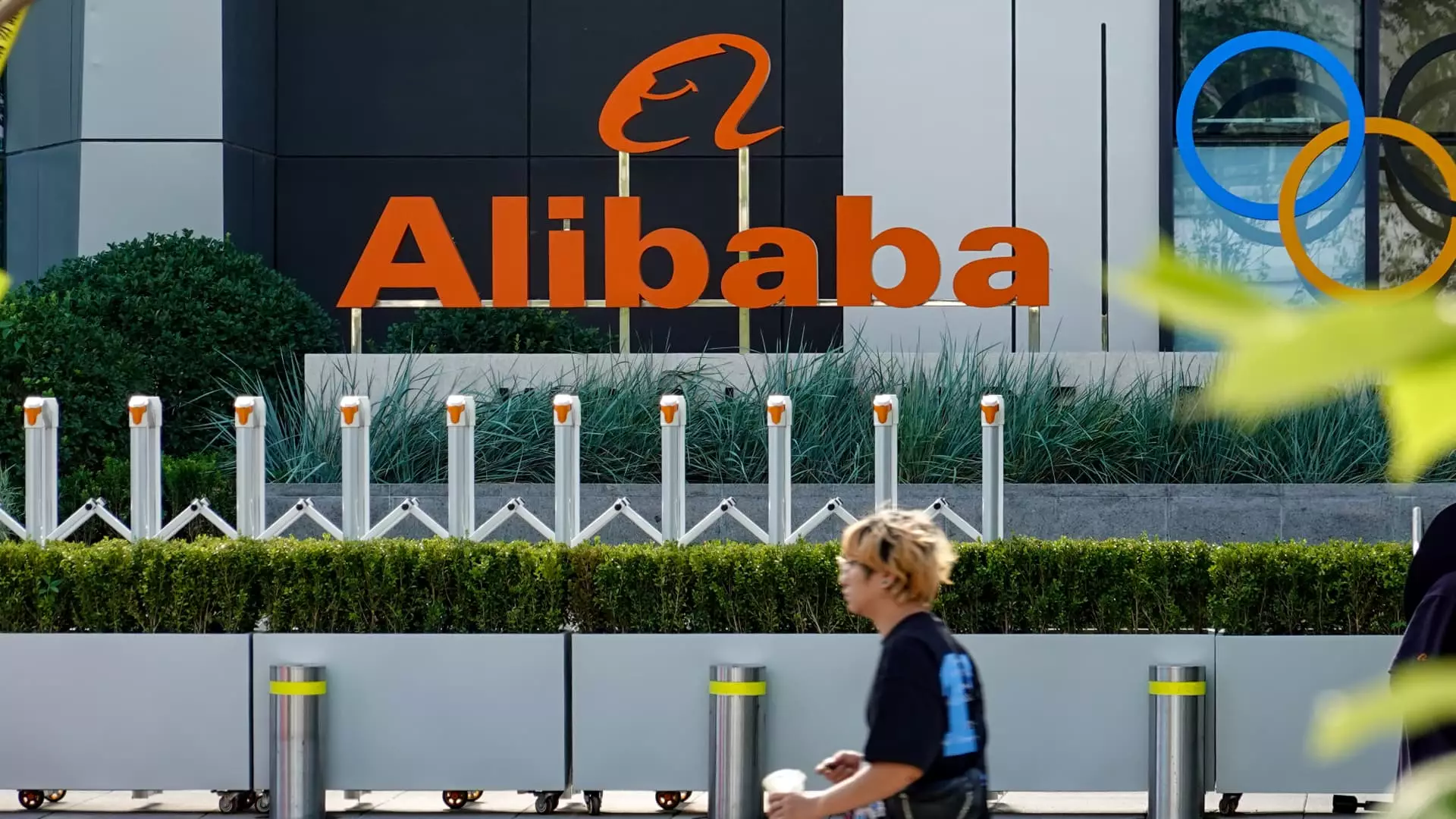In an increasingly volatile economic landscape, marked by trade wars and governmental unpredictability, investors are left grappling with how to shield their portfolios from uncertainty. Enter Alibaba, the e-commerce behemoth, which has seen its stock surge dramatically—over 56% in 2023 alone. But beyond just a remarkable growth figure lies a narrative worth exploring, especially for investors seeking resilience against tariff-induced shocks. Quint Tatro, founder of Joule Financial, cemented this belief on CNBC’s “Power Lunch,” asserting that Alibaba isn’t just a stock—it’s a hedge against fiscal instability.
Tatro’s recommendation for Alibaba resounds with a simplicity that’s both refreshing and essential in today’s market: avoid the instability and unrest by investing strategically overseas. The fact that a staggering 80-90% of Alibaba’s revenue flows from within China, with a mere 5% tied to the U.S. market, positions it as exceptionally insulated from the whims of changing tariffs. This is critical for anyone who wishes to navigate the treacherous waters of economic policy swings.
Fundamental Strengths that Cannot Be Overlooked
What truly sets Alibaba apart is not merely its geographical revenue breakdown but its rock-solid fundamentals. With cash reserves totaling around $67 billion, the company’s financial stability is enviable. Tatro pointed out that Alibaba is not only capable of shielding itself from tariffs, but it’s also aggressively pursuing innovation. An ambitious plan to invest over $50 billion in artificial intelligence over the next three years underscores a forward-thinking strategy that many companies would envy.
This isn’t merely about surviving; it’s about thriving in an environment filled with uncertainty. When investors consider stock purchases, their focus should not only rest on past growth but also on future potential. Alibaba offers a unique blend of resilience and ambition that is hard to find within the fluctuating tech sector.
Comparisons with Other Market Players
While Alibaba’s growth is impressive, it’s crucial to analyze it within the broader landscape of market contenders such as Exxon Mobil and Snowflake, which Tatro also discussed. Exxon Mobil, although showing 10% growth year-to-date, faces a different set of challenges that could limit its upward trajectory—even as Tatro hints at potential gains in deregulation and energy policy. Meanwhile, Snowflake might seem like a beacon of promise in cloud data storage. Still, investors need to be cautious regarding its pricey valuation.
Where Alibaba stands apart is in its emissions. It is a company that is demonstrating growth and innovation without being ensnared in the complexities of tariff negotiations. Investing in Alibaba could be akin to investing in a fortress during a storm—it stands tall and unyielding against the tide.
The Long-Term Vision
What’s particularly intriguing about Alibaba is its vision that transcends current trade challenges. In an age of technological investment and global connectivity, Alibaba embodies an ideology that aligns with modern consumer needs and behaviors, particularly in emerging markets outside of the West. As global commerce pivots toward a more digitized future, Alibaba is likely to remain a pivotal player in shaping how transactions occur not just within China, but globally.
The traditional Wall Street mindset often emphasizes short-term gains without considering a company’s long-term sustainability and adaptability. However, Alibaba’s multi-faceted approach to tackling global commerce while weathering economic storms illustrates a refreshing paradigm shift. The importance of looking beyond immediate gains could not be highlighted more vividly than in Alibaba’s case.
Navigating the Investment Landscape with Caution
Yet, a note of caution must be acknowledged. While Alibaba appears to be a secure port in a turbulent sea, no investment comes without risk. The unpredictable nature of geopolitical affairs, potential regulatory changes within China, and the broader implications of economic tensions create an environment where due diligence becomes paramount. Investors must tread carefully—not only relying on facts but also preparing for potential waves of change that could impact Alibaba’s trajectory.
Amid the cacophony of market noise and data, Alibaba emerges as a beacon for those willing to embrace a center-right, liberal approach to investment—an approach that favors strategic foresight over reactionary measures. The current climate may indeed present obstacles, but companies like Alibaba that forecast and adapt biological markets will be the victors of tomorrow.

